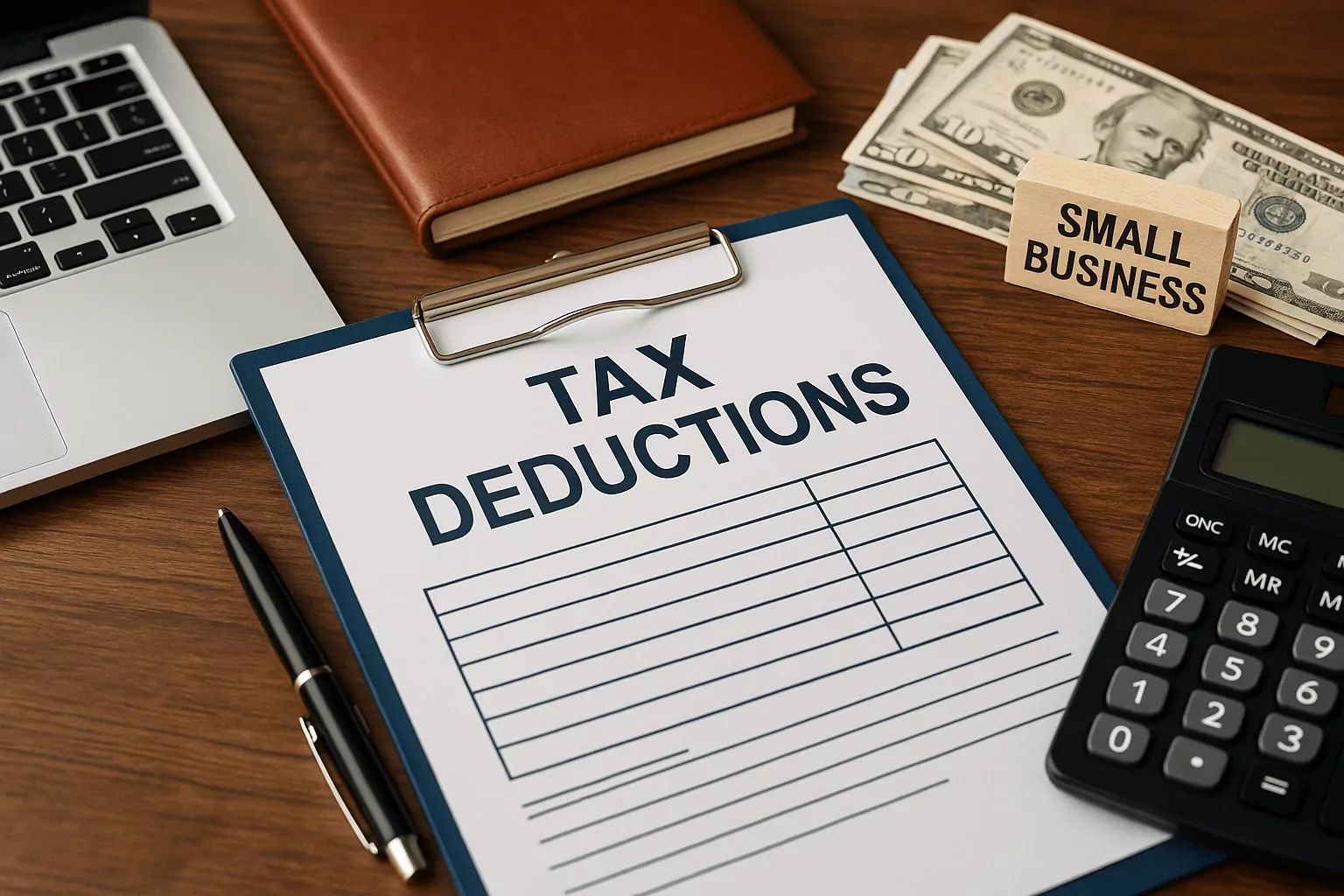How to Claim Tax Deductions for Your Small Business Successfully
Maximize Your Small Business Savings with Practical Tax Deduction Tips for Entrepreneurs

How to Claim Tax Deductions for Your Small Business Successfully
Introduction
As a small business owner, understanding the nuances of tax planning is crucial for maximizing your profits while minimizing your tax liabilities. Tax deductions for small business can provide significant tax savings for entrepreneurs, allowing you to reinvest in your business or enhance your personal financial situation. However, many small business owners often overlook the various deductible business expenses available to them, which can lead to missed opportunities for savings. This blog will guide you through the essential steps to effectively claim tax deductions, including tips on identifying eligible write-offs and understanding the rules governing them. By implementing these strategies, you can navigate the complexities of business taxes with confidence and ensure compliance while boosting your bottom line.
Main Content
1. Understanding Deductible Business Expenses
Deductible business expenses are ordinary and necessary costs incurred in the course of running your business. These can range from office supplies to employee wages. It's essential to keep accurate records of all expenses to substantiate your claims during tax season. For instance, if your business requires a dedicated office space, you may be eligible for home office deductions, which can significantly reduce your taxable income. To maximize your tax deductions small business owners should categorize their expenses accurately, as this will make it easier to claim them.
Another example of deductible expenses includes vehicle costs if you use your car for business purposes. You can either deduct the actual expenses incurred or use the standard mileage rate. By maintaining a detailed log of your business-related travel, you can ensure that you are capturing all eligible deductions. Understanding the specific categories of deductible business expenses can help you make informed decisions about your spending and ensure you are taking full advantage of available tax savings.
2. Common Tax Deductions for Small Businesses
There are several common tax deductions that small businesses often overlook. Here are a few key areas where you might find significant savings:
By identifying and documenting these common write-offs, you can significantly reduce your taxable income and improve your overall financial health. Consider working with a tax professional to ensure you don't miss out on any deductions that might apply to your specific business situation.
3. Effective Record Keeping for Tax Deductions
Maintaining organized records is vital for successfully claiming tax deductions. Establishing a systematic approach to record-keeping helps ensure that you have the necessary documentation to support your claims during tax season. Utilize accounting software to track your income and expenses, which can streamline the process and reduce the risk of errors. Regularly reviewing and categorizing your expenses can also help you stay on top of your deductible business expenses.
In addition to using software, it's essential to keep physical copies of receipts and invoices. Consider creating a dedicated folder for tax-related documents to ensure easy access when filing your returns. A solid record-keeping system can also help you identify trends in your spending, which may reveal additional opportunities for tax savings for entrepreneurs.
4. Tax Tips for Small Businesses
As a small business owner, being proactive about tax planning can lead to significant financial benefits. Here are some essential tax tips to consider:
By implementing these tax tips for small businesses, you can enhance your overall tax strategy and ensure that you are making the most of your available deductions.
FAQs
1. What are the most common tax deductions for small businesses?
The most common tax deductions for small businesses include advertising expenses, employee wages, and professional fees. Other deductible business expenses can include travel costs, office supplies, and home office deductions. It is essential to keep accurate records of these expenses to ensure you can substantiate your claims during tax season. Each business is unique, so consider consulting with a tax professional to identify all eligible write-offs specific to your situation.
2. How can I maximize my tax deductions?
To maximize your tax deductions, maintain organized financial records and stay informed about eligible expenses. Categorizing your expenses and using accounting software can help you identify potential deductions more easily. Additionally, consider consulting with a tax advisor who can provide personalized insights and strategies tailored to your specific business needs. Staying proactive about your tax planning can lead to substantial savings over time.
3. Are there limits on how much I can deduct?
Yes, certain deductions may have limits imposed by the IRS. For example, the home office deduction has specific criteria that must be met, and certain vehicle expenses may also be capped. It is essential to understand the rules governing each deduction to ensure compliance and avoid potential penalties. A tax professional can help clarify these limits and guide you on how to maximize your deductions within the legal framework.
4. Can I deduct expenses for a business I started this year?
Yes, you can deduct expenses for a business you started this year, as long as they are necessary and ordinary costs incurred in the course of operating your business. Start-up costs may also be eligible for deductions, but there are specific rules governing how these costs can be treated. Be sure to document all expenses related to your new business to maximize your deductions and consult with a tax professional for guidance on your specific situation.
Conclusion
Claiming tax deductions for your small business is a crucial aspect of effective tax planning. By understanding the various deductible business expenses, maintaining organized records, and implementing strategic tax tips, you can optimize your tax savings and enhance your financial health. Don't hesitate to seek professional advice to ensure you are making the most of available deductions. If you're ready to take control of your business finances, contact Premier Tax and Business Services at 314-669-7300 or visit us at www.premiertbs.com for expert assistance in tax planning and maximizing your savings.

